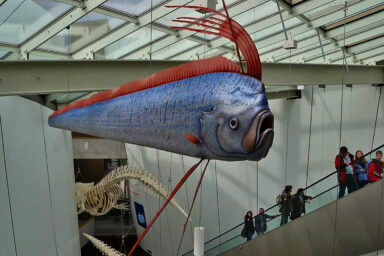Accessible Health Care Could Be Key to Solving Climate Crisis: Study
Trump’s Manufacturing Promises Disappoint as Economy Sours ; After a Season of Protest, Police Reform Is on the Ballot ; and More Picks 10/28
Trump’s Manufacturing Promises Disappoint as Economy Sours (Reader Jim)
The author writes, “The president’s promise of an American manufacturing renaissance has not always resulted in the pledged jobs or economic investment. Mr. Trump has threatened companies like General Motors, Harley-Davidson and Carrier with backbreaking taxes and boycotts if they moved manufacturing abroad, often cajoling job promises out of those firms. But in many cases, those pledges went unfulfilled once Mr. Trump’s attention shifted elsewhere and market realities could not be ignored.”
After a Season of Protest, Police Reform Is on the Ballot (Dan)
From Bloomberg: “Black Lives Matter protests brought people into the streets in the middle of a pandemic. Now, it might bring them out on Election Day. Demands for police accountability, criminal justice reform and racial justice have been translated from rallying cries and protest signs into initiatives on state and local ballots. … While some of the measures were proposed directly as a response to the killing of George Floyd and Breonna Taylor and the calls for change that followed, others had been in the pipeline for years or months, only to gain new momentum this spring.”
Not Every Presidential Election Has Been Decided on Election Day (Dana)
The author writes, “In a year full of uncertainties, Election Day 2020 is one of the biggest wildcards. With an expected record number of mail-in ballots being cast in the Presidential race, it’s unclear whether a winner will be announced Election Night. Even after a winner emerges, there may be challenges to the result. And, some Americans worry, even the matter of whether Election Day will be peaceful is not a given. But while many facets of the 2020 election, such as the role of COVID-19, are unprecedented, the U.S. does have a history of Presidential elections that took more than a vote to resolve. And while it’s a short list, it’s one that goes back to the earliest days of the Republic—and that holds lessons for today.”
A USC Player Filed for Unemployment. A Suspension and a Visit From the Feds Followed (Reader Steve)
The author writes, “The Pandemic Unemployment Assistance program was meant to help those unable to work because of the novel coronavirus, so Munir McClain assumed that he would qualify. The USC receiver, like so many other college athletes, had spent the previous few months stuck at home, unable to play or practice. The income he earned reselling high-end sneakers, which sometimes yielded up to $1,000 a pair, had slowed during the pandemic, and money was tight. So he filed for PUA, which in California promised a minimum benefit of $767 per week. Months later, the state accepted his claim, and McClain pocketed the money, with plans to invest it in a new apparel brand he started with his siblings, BeenFree. But by mid-September, with a postponed football season fast approaching, USC had suspended McClain.”
Why Education Technology Can’t Save Remote Learning (Peg)
From Axios: “The coronavirus-sparked shift to widespread remote work has been generally smooth because most modern offices were already using a raft of communication, collaboration and administrative tools. Remote learning has faced a much rougher transition. Why it matters: Even the best technology can’t eliminate the inherent problems of virtual schooling. Several key technological stumbling blocks have persisted in keeping remote learning from meeting its full potential.”
In Australia, Inflatable Tube Dancers Scare Dingoes Away From Livestock (Dana)
The author writes, “Researchers may have found one of the most energetic, colorful scarecrows in the business. A study … shows that an inflatable tube dancer can scare Australia’s wild dogs away from their dinner. The wildly waving, air-powered tubes may be best known for their persistent presence in the parking lots of used car dealerships. But they have the perfect combination of size and surprise to spook wily predators that would otherwise eye up local livestock.”



